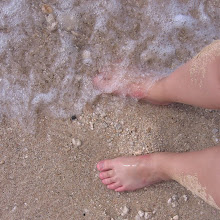The better known part of the quote is this: The past is our definition. We may strive, with good reason, to escape it, or to escape what is bad in it, but we will escape it only by adding something better to it (p. 14).
Reading the paragraph that leads into that quote, we see a bit more of his own context and concerns: Contemporaneity, in the sense of being "up with the times," is of no value. Wakefulness to experience -- as well as to instruction and example -- is another matter. But what we call the modern world is not necessarily, and not often, the real world, and there is no virtue in being up-to-date in it. It is a false world, based upon economies and values and desires that are fantastical -- a world in which millions of people have lost any idea of the materials, the disciplines, the restraints, and the work necessary to support human life, and have thus become dangerous to their own lives and to the possibility of life. The job now is to get back to that perennial and substantial world in which we really do live, in which the foundations of our life will be visible to us, and in which we can accept our responsibilities again within the conditions of necessity and mystery (pp. 13-14).
And then a bit later, immediately before the first quote: Our past is not merely something to depart from; it is to commune with, to speak with (p. 14).
Berry had some very specific issues and concerns in mind here, of course, but these words and images speak to my current explorations as well. As I think about journeying, in all the various ways this blog will explore, it is somewhat easier for me to imagine living into questions as I look ahead, and more challenging to think about how to do so as I look backwards. How do we -- as individuals, or communities, or institutions -- attend to the past in ways that recognize its constitutive value (how it forms and informs us) without settling into a rigid sense that it defines us? A quick reading of Berry's first quote, "The past is our definition," could be used to support a static reading of what has come before, as well as a direct link or cause-effect relationship between the "realities" of the past and the possibilities of the future. But his mention of "adding something" to it, as well as the more active image of "to commune with, to speak with," seems to offer a bit more potential. This sort of perspective, along with words like "wakefulness" and "mystery," offers an alternative, one in which the past is just as open as the future, not for fixing or resolving (answering), but for a living process of engagement and exploration -- questioning, not for the sake of interrogation or justification, but rather for and within that sense of mystery and possibility.

i like this quote: "Our past is not merely something to depart from; it is to commune with, to speak with" (p. 14)
ReplyDeleteas i think about continuity, this is a good place to start. i can't simply jetison my past which for me in an academic world is: trained in a pretty orthodox fashion, exposed to feminism during my undergrad, etc, etc. that past is something which is a part of me, has formed me, and despite my rumblings, remains part of me (my hermeneutical framework, epistemology, etc). so, the challenge for me is to engage in this past, despite my frustrations with it. and, not just engage in this past but to commune with it.
its a helpful reminder as i want to be fully integrated, but also a challenge because of the pitfalls i see in engaging/communing with this particular part of my past. for example, how does my orthodox training inform my interest in moral agency? you raise helpful questions, which for me have pedagogical implications. thank you for writing.